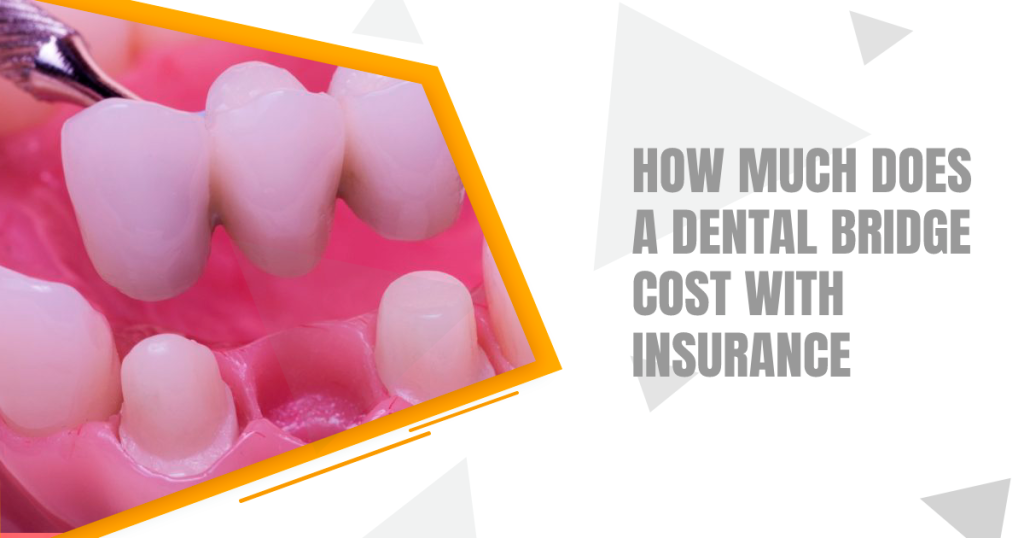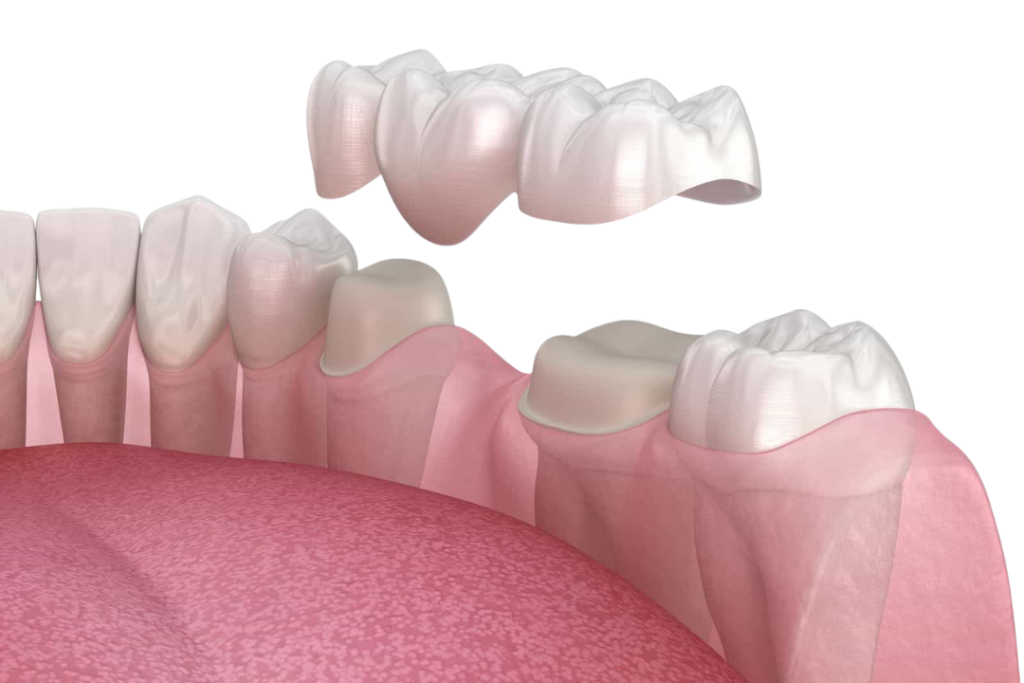
How Much Does A Dental Bridge Cost With Insurance? Dental bridges are a common dental procedure that can help restore your smile if you are missing one or more teeth. Bridges are custom-made to fit your teeth and are made out of either metal or ceramic.
The cost of a dental bridge might fluctuate depending on your insurance coverage and the type of bridge you need. So how much does a Dental Bridge Cost With Insurance? Continue reading to know how to make the most of your coverage.
Contents
Types Of Dental Bridges & Their Cost
How Much Does A Dental Bridge Cost With Insurance? Traditional dental bridges typically consist of a set of artificial teeth that are attached to crowns, which are secured to two or more neighboring natural teeth to serve as support beams. These bridges range in cost from $1000 to $5000, depending on factors such as the material used, the complexity and number of crowns involved, and other factors.
Another form of restoration used to restore missing teeth is the cantilever dental bridge. Unlike traditional bridges, these restorations can be supported by only one adjoining structure rather than two. As a result, they tend to be less expensive than standard bridge techniques, with costs ranging from $2000 to $2700.
Another option is Maryland bridges, which consist of two abutments crowned with natural-looking prosthetics and secured to the surrounding teeth with metal pins. This type of bridge typically costs between $1,500 and $2,500 and generally takes less time to install than other types of bridges.
The last option is Implant-supported bridges, which use surgical posts implanted directly into the jawbone in order to secure the dental appliance. This type of bridge typically ranges in price from $5,000 to $16,000 depending on factors such as the complexity of the procedure and the number of implants used.
| TYPE OF DENTAL BRIDGES | COST |
| Traditional Dental Bridge | $1,000 to $5,000 |
| Cantilever Dental Bridge | $2,000 to $2,700 |
| Maryland Dental Bridge | $1,500 to $2,500 |
| Implant-Supported Bridge | $5,000 to $16,000 (two implants support one bridging tooth) |
Are Dental Bridges Covered By Insurance?

Are dental bridges covered by Insurance? In short, yes. On the one hand, many insurance plans do pay for dental bridges in full or in part. Depending on your particular plan, this coverage might often range from 40 to 50 percent or higher.
However, it is important to note that some insurance providers leave patients to bear all costs related to dental care. In these cases, individuals will have to pay for their dental bridges out-of-pocket, which can be quite expensive, depending on the type and complexity of the treatment.
Conclusion
The average cost of a dental bridge that is covered by insurance ranges from $500 to $1,200. A dental bridge can be an affordable way to replace missing teeth, but it is important to check with your insurance provider to see if it is covered.
How Much Does A Dental Bridge Cost With Insurance? Dental bridges are an affordable option for replacing missing teeth and can last up to 5-7 years with proper care. Most dentists offer financing options as well, making it easier than ever before to get the treatment you need without breaking the bank! Have you had a dental bridge placed? Tell us about your experience in the comments below!
FAQs – How Much Does A Dental Bridge Cost With Insurance
Q1: Is A Dental Bridge Costlier Than A Crown?
A1: While both procedures can be effective at restoring damaged teeth, it is generally believed that dental bridges are more expensive than dental crowns. This is because dental bridges typically require more work to complete and more materials to fabricate.
For example, a dental bridge typically involves the creation of an artificial tooth to support the replacement tooth and attached fake teeth designed to hold it in place. In contrast, dental crowns only involve reshaping and repairing the existing tooth structure.
Q2: Which Is The Cheapest Type Of Dental Bridge?
A2: The cheapest option by far is a removable dental bridge. Removable bridges consist of two crowns that fit over adjacent teeth, with a custom-made bridge piece in between to fill the gap.
These crowns securely clip onto the neighboring teeth, making them easy to remove and clean at home. Although they can be prone to shifting over time, removable dental bridges are typically less expensive than other types of bridges due to a simplified construction process.
Q3: What Is The Lifespan Of A Dental Bridge?
A3: While there are many different factors that can affect the durability of a dental bridge, on average it can be expected to last 5-7 years. This is because the bridge consists of multiple components, including the false teeth or pontics and the anchor teeth or abutments, which are cemented together by a sturdy metal framework.
Because these individual parts are constantly under stress from biting and chewing, it is not uncommon for a bridge to loosen or fail over time. However, you may help your dental bridge last longer by maintaining proper oral hygiene and visiting your dentist for exams and cleanings on a regular basis.
Q4: How Painful Is A Tooth Bridge?
A4: Contrary to popular belief, tooth bridges are not particularly painful. In fact, they tend to be quite tolerable and can often be used in place of other, more invasive dental procedures. This is because unlike root canals or crowns, which involve drilling into the affected area, tooth bridges are merely attached using special adhesives. As a result, they cause very little discomfort during the process and not much pain afterward.
